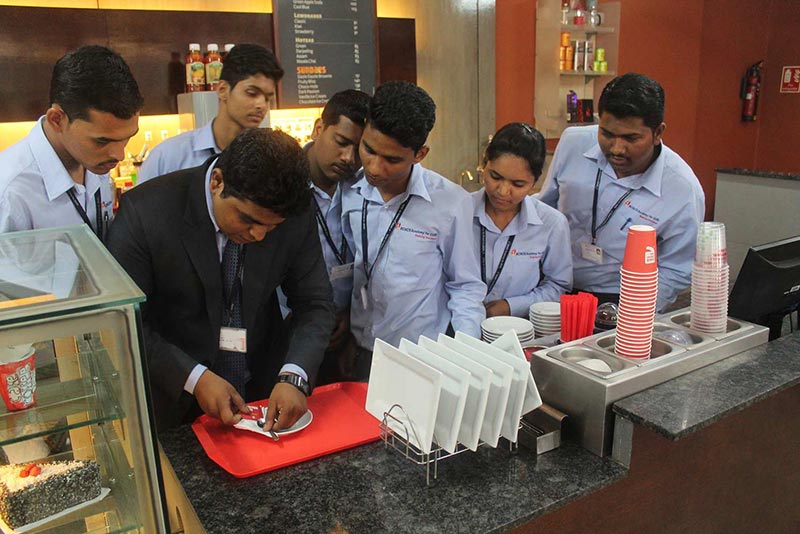By 2020, 65% Indians will be under the age of 35, making us the youngest country in the world. A large employable population is an advantage, for it can fulfil the demand for skilled workers across India and globally, as also drive consumption and economic growth. However, this demographic dividend can turn into a demographic disadvantage, as a high number of unskilled and semi-skilled youth form a large base of the labour force, with low productivity and lower wages. One reason for youth unemployment is structural unemployment – a mismatch between the skills that workers in the economy can offer and the skills demanded of workers by employers.
July 15 is globally recognised as World Youth Skills Day and the theme decided by the United Nations’ for this year is #SkillsForAll. World Youth Skills Day presents an opportunity to come together and recognise the importance of youth skills development, giving youth the chance to contribute to their communities’, countries’ and international sustainable development. The UN designated day seeks to generate greater awareness of and discussion on the importance of technical, vocational education, and training and the development of other skills relevant to both local and global economies.
India has a unique advantage in the form of its demographic dividend. As one of the youngest nations in the world, nearly two third of India’s population is in the working age group. In addition, India’s young population is around 100 million which is more than the total population of all the G7 countries combined. It is further estimated that the average age of the population in India by 2020 will be 29 years as against 40 years in the US, 46 years in Europe and 47 years in Japan. However, to reap this demographic dividend, we need to enable the youth to acquire the skills required to get the job or become self-employed. Only then will we see the resulting growth and prosperity for this group and for the country.
“A large section of our youth, particularly the underprivileged segments of the population have little access to training that can improve their employability. It is estimated that only 4.69% of the total workforce in India has undergone formal skill training. This shows a huge skill gap in India which needs to be addressed.
Keeping this in mind, ICICI Foundation launched the ICICI Academy for Skills to provide vocational training to the youth from the economically weaker sections to enable them to earn a sustainable livelihood. Simultaneously, we are expanding the Foundation’s reach into the rural areas as well through the ICICI Digital Villages project,” said Chanda Kochhar, MD & CEO, ICICI Bank.
Young people are almost 3 times more likely to be unemployed than adults and continuously exposed to the lower quality of jobs, greater labour market inequalities, and longer and more insecure school-to-work transitions. In addition, women are more likely to be underemployed and underpaid, and to undertake part-time jobs or work under temporary contracts. That is why education and training are key determinants of success in the labour market. But unfortunately, existing systems are failing to address the learning needs of many young people, and surveys of learning outcomes and skills show that a large number of youth have low levels of achievement in basic literacy and numeracy. Skills and jobs for youth feature prominently in the 2030 Agenda for Sustainable Development, and SDG target 4.4 calls for a substantial increase in the number of youth and adults who have relevant skills, the United Nations said.
Udyogini, an NGO working towards promoting entrepreneurship and youth employability skills among the underprivileged, announced its strategic collaboration with Citi India and EduBridge Learning to launch the first (of the three) LEAD Academies in Pune, on the eve of World Youth Skills Day.
In a scenario where only 2.3% of the workforce in India has undergone formal skill training, as compared to other developed nations, the initiative aims to directly impact 600 unemployed youth in Pune and 2000 collectively.
TechnoServe, an international non-profit organisation with the support of The Citi Foundation recently organised the 2nd Career Fest to help over 400+ students from urban slums in Mumbai get an employment opportunity. Over 10 corporates attended the career fest and made several offers. Operating in 29 countries, TechnoServe is a leader in harnessing the power of the private sector to help people lift themselves out of poverty. The program is focused on training personal effectiveness, professional English and counselling, and mentoring activities perfectly complements and supports the gaps in these colleges – making these youth ideally suited for their structured intervention model which brings the entire suite of employability services within the college premises directly in reach of their students.
Structural unemployment adversely affects all regions around the world, impacting economies and hampering the transition to equitable and inclusive societies envisaged in the 2030 Agenda for Sustainable Development. Developing appropriate skills among the youth is the solution to the problem.
Regards,
The CSR Journal Team
Subscribe


